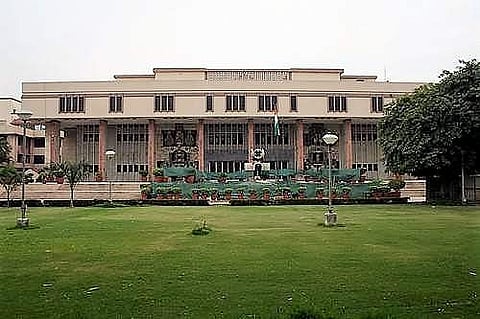

NEW DELHI: Only the spouse or children can be appointed as a legal guardian of a person in a coma and they will have to disclose the details of all tangible and intangible assets of the patient, the Delhi High Court has said.
The court said if a person in a coma did not have any spouse or children or was abandoned by the family, his next friend could be appointed as a guardian with the prior permission from a court.
The high court examined various existing laws -- the Guardians and Wards Act, 1890, the Mental Health Act, 1987 (repealed), the National Trust Act for the Welfare of Persons with Autism, Cerebral Palsy, Mental Retardation, the Multiple Disabilities Act, 1999, the Persons with Disabilities (Equal Opportunities, Protection of Rights and Full Participation) Act, the Mental Healthcare Act, 2017 and the Rights of Persons with Disabilities Act, 2016.
Justice Rajiv Shakdher said the definitions of these provisions showed a person in a coma was not covered.
The court noted that a similar situation had arisen before the Kerala High Court, which had in 2019 come up with certain guidelines on how to deal with such cases, and said those guidelines appeared to be robust and could be used in Delhi.
"The guidelines framed by the division bench of the Kerala High Court appear to be robust and, therefore, can be used as a framework for formulating guidelines that need to be applied in the National Capital Territory of Delhi till such time the legislative chasm is filled-up and a specific provision is made as to how guardians are to be appointed qua persons in a comatose state," the judge said.
The guidelines say that persons who seek to be appointed as guardians of an individual lying in coma shall disclose in their petition in the court the details of all tangible and intangible assets of such an individual.
The details of the location and approximate market value of the assets, bank accounts, stocks, shares, debentures and other investments shall also be disclosed, they said.
"The court will have the person lying in coma examined by a duly constituted medical board which would include, inter alia, a neurologist," the judge said.
The guidelines also include that the sub-divisional magistrate (SDM) or tehsildar concerned, under whose jurisdiction the person lying in a coma is located, shall conduct an enquiry to establish the veracity of the assertion and to gather details of the person who wishes to be appointed as a guardian.
"Ordinarily, only that person will be appointed as the guardian who is a spouse or a progeny of the person lying in comatose.
The person seeking appointment as a guardian in his petition to the court will, however, disclose the particulars of all legal heirs of the person lying in comatose," the guidelines said.
The person appointed as a guardian would file a report with the registrar of the high court after every six months and if the guardian misused his power, siphoned or misutilised the assets of the patient, the court would have the power to remove him and appoint another person, the guidelines said, adding that the substituted person could also be a public officer such as a social welfare officer or an officer holding an equivalent rank.
If the guardian wanted to move the person lying in a coma to another state or country for better medical treatment, he would approach the court for prior permission, the court said.
It added that the Department of Social Welfare of the Delhi government would ensure that public officials or social welfare officers were appointed for each district in the national capital.
It listed the matter for January 23 for compliance of this aspect by the department, which can also suggest any modifications or additions to the guidelines set forth to bring it in line with the local conditions prevailing in Delhi.
The court's verdict came on a petition filed by two daughters of a woman, who is in a coma, and the State Bank of India (SBI) with which their father, since deceased, had maintained a PPF account, and it was refusing to release the amount to them.
The SBI took the stand that a guardianship certificate had to be obtained from the district court concerned under the now-repealed Mental Health Act, 1987 or from a local-level committee under the National Trust Act for the Welfare of Persons with Autism, Cerebral Palsy, Mental Retardation and the Multiple Disabilities Act, 1999.
The court, however, held that the SBI's stand was clearly untenable and allowed the prayers of the two daughters to be appointed as guardians qua the PPF account maintained by their deceased father.
It asked the bank to transfer the amount to the joint account of the two women with their mother, after completion of all formalities.